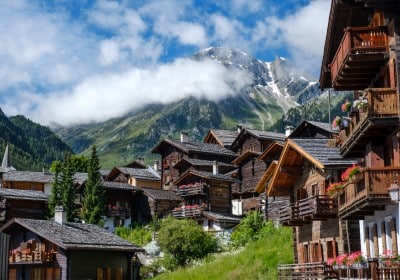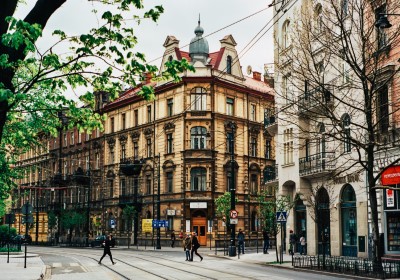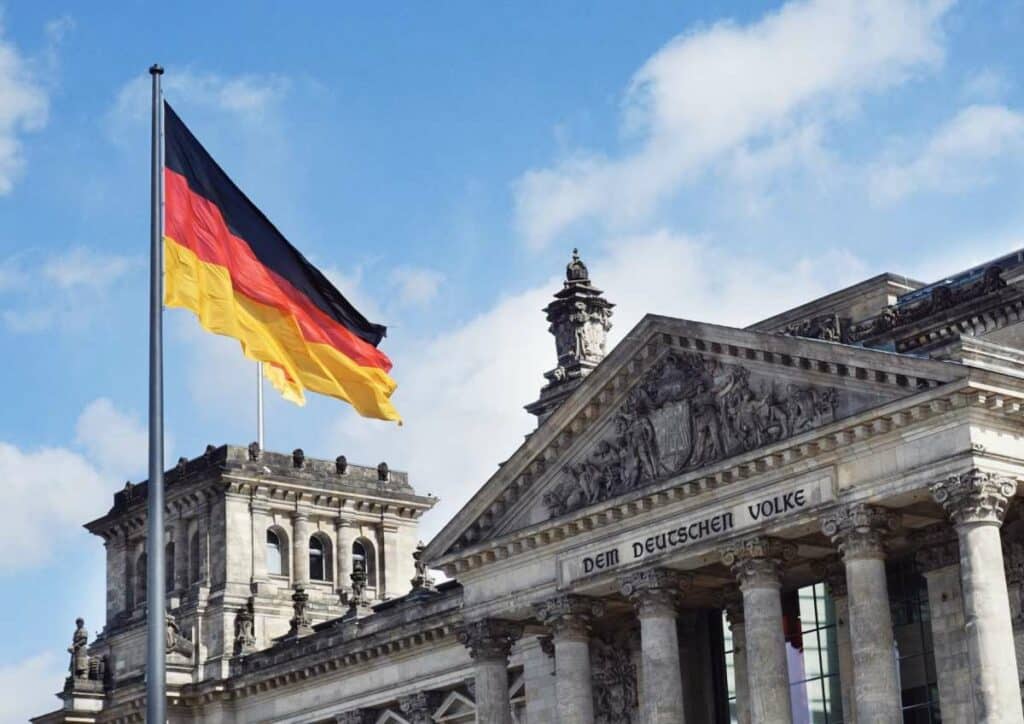Buying property in Europe is a smart way to diversify your assets, secure a second home, or generate rental income. From vibrant cities to tranquil coastlines, Europe offers diverse real estate investment opportunities for all budgets.
Whether you’re interested in a vacation apartment in Spain, a retirement villa in Portugal, or a buy-to-let property in Greece, this guide explains where and how to invest, the legal requirements for foreigners, and the benefits of European property ownership.
- What does the European property market look like?
- Can Americans buy property in Europe?
- Can you buy property in Europe and get residency?
- What are the legal requirements for buying a property in Europe?
- Can you buy land or other types of property in Europe?
- The 9 Best Places to Buy Property in Europe
- How to Buy Property in Europe as an American: Step-by-Step
- How much do property cost in Europe?
- What kind of taxes and fees will you need to pay?
- Frequently Asked Questions
What does the Europe property market look like?
The European real estate market varies widely by country and city, offering both stable and high-growth opportunities for real estate investors. Recent trends show that energy-efficient homes are increasingly in demand, driven by European Union (EU) green building regulations and buyer interest in sustainable living.
Remote work has also shifted demand away from major capitals to smaller towns and rural areas across Europe. Overall, real estate investment in Europe can deliver annual rental yields ranging from 3 to 7%, with higher returns in emerging real estate markets and popular tourist destinations. Here is an overview of the current European property market:
Western Europe
- Germany: Property prices rose by around 6.5% in 2023 (slightly lower than 7.6%), with Berlin recording approximately 6% annual growth. Cities like Munich and Frankfurt remain attractive for long-term real estate investment in Europe due to strong rental demand.
- France: The average price per square meter in Paris is roughly €10,500. Nationwide, prices increased about 3 to 4% in 2022, then plateaued in 2023 due to rising interest rates.
Southern Europe
- Spain: House prices grew by 3.5% in 2023, with an average of about €1,750 per square meter outside major cities. Madrid and Barcelona are higher, often exceeding €3,500 to €4,500 per square meter, but can offer rental yields of 4 to 6%, especially in tourist districts.
- Portugal: Lisbon’s property market saw a 6–7% price increase in 2023, in line with your data, with average prices around €3,200 per square meter.
- Greece: Property prices in Athens rose by approximately 12% year-on-year, driven partly by foreign demand and the Greece Golden Visa program. This makes Greece one of the easiest countries to buy a house in Europe if you seek both lifestyle and investment value.
Eastern Europe
- Romania: In Bucharest, the average price is about €1,450 per square meter, with annual increases around 7 to 8%, reflecting growing demand and limited supply.
- Bulgaria: The Bulgarian capital city of Sofia’s property market grew by about 9 to 10% in 2023, with an average price near €1,300 per square meter. Bulgaria continues to attract foreign investors searching for affordable real estate investment in Europe.
Luxury real estate markets
- Monaco: Remains one of the most expensive real estate markets in Europe, with average prices of €48,000 per square meter in 2023.
- London: Property in London is significantly more expensive than in most other European cities, with prices often several times higher than the UK national average and mainland European cities. Average property prices were approximately £532,000 (€610,000) in 2023, with modest growth around 2 to 3%. Despite this alongside tax and Brexit impacts, central London districts still continue to attract high-net-worth real estate investors.
Can Americans buy property in Europe?

In the United Kingdom, there are no restrictions on foreign ownership, though buyers must comply with anti-money laundering regulations and typically work with a solicitor.
Foreign ownership rules are broadly favorable in Western Europe, but some countries still require additional permits for non EU citizens.
Germany allows foreign nationals to purchase real estate freely, but transactions require a notary and involve additional costs like purchase taxes and registration fees.
While France welcomes non-EU buyers, the process can be more complex, with higher legal fees and mandatory notary involvement.
Spain is one of the most popular destinations for real estate investment in Europe, requiring a foreign tax identification number (NIE) and payment of taxes such as VAT on new builds.
In Italy, buyers must obtain a fiscal code (codice fiscale) for real estate transactions, along with covering notary and registration costs.
Greece allows Americans to purchase property with a tax registry number, though there can be restrictions near military zones or border areas.
Each country offers unique opportunities and considerations for Americans exploring where to buy property in Europe, so working with local real estate agents, lawyers, and notaries is essential to ensure your purchase property process is smooth and compliant.
Can you buy property in Europe and get residency?
Yes, buying property in Europe can sometimes lead to residency, depending on the country and investment amount.
Several European nations offer Golden Visa programs, where real estate investment in Europe grants residency rights. These property investment visa schemes are popular with non EU citizens who want greater mobility and long-term residence options.
For example, in Greece, purchasing property from €250,000 can qualify you and your family for a residence permit, with the potential to apply for permanent residency or citizenship after a few years.
Other countries also have attractive Golden Visa schemes linked to property purchases. In Malta, residency by property investment is available, starting at €300,000 for properties located outside urban centers.
However, each program has specific requirements, including minimum investment thresholds, annual taxes, and sometimes mandatory stay periods to maintain your residency status.
Before moving forward, it’s essential to research each country’s regulations carefully and consult experienced legal advisors to ensure your European property investment aligns with residency rules and offers potential capital appreciation.
What are the legal requirements for buying a property in Europe?
The legal requirements for buying property in Europe vary depending on each country’s laws, but there are several key factors to consider when planning your real estate investment in Europe:
- Permission to buy: Most European countries allow foreigners to purchase property without restrictions. However, some nations, like Denmark or Austria, may require additional approvals or permits for non EU citizens.
- Tax identification number: Many countries, including Spain, Portugal, and Italy, require you to obtain a local tax identification number before completing a property transaction.
- Legal assistance: Hiring a qualified local lawyer or public notary is often essential to manage contracts, due diligence, real estate transactions, and property registration. This step ensures your European property investment is compliant with all regulations.
- Financing: Non-resident buyers can often secure mortgages from European banks, but down payments tend to be higher, typically ranging from 20 to 40% of the purchase property price.
- Additional costs: Expect to pay transaction fees, property taxes, notary charges, and sometimes stamp duty, depending on the country and property type. These costs can add another 5 to 15% to your total investment.
Before buying property in Europe, always research the specific requirements in your target country and consult with experienced legal and tax professionals to guide you through the process and help you evaluate potential rental income and capital appreciation.
Can you buy land or other types of property in Europe?
Yes, you can buy land in Europe, but the rules and restrictions differ significantly depending on the country. Generally, locals, Americans, and other foreign buyers can purchase land in most European countries.
However, certain nations impose regulations based on factors such as the buyer’s residency, nationality, or the type of land, such as agricultural land versus residential property.
Here’s an overview of what to expect when buying property in Europe:
Countries with few or no restrictions
Many European countries welcome foreign property purchases and make it relatively straightforward for non-residents to buy land or real estate:
- Spain: Foreigners can buy residential, commercial, and agricultural land without restrictions, making it one of the most popular destinations for real estate investment in Europe.
- Portugal: Open to foreign buyers, with clear legal procedures for purchasing residential or commercial land.
- Italy: Non-residents can purchase land, including farmland, without special limitations.
- France: Foreign buyers can freely acquire land and properties, including agricultural plots and commercial sites.
- Germany: No restrictions for foreign investors, with a transparent process for purchasing land and registering ownership.
Countries with some restrictions
Certain countries limit foreign ownership in specific situations, such as purchasing agricultural land or requiring government approval:
- Switzerland: Non-residents face restrictions on the type and size of land they can buy, particularly for vacation homes or investment properties.
- Hungary: Foreigners must obtain government approval to purchase agricultural land.
- Denmark: Requires foreign buyers to have a local residence or demonstrate a close connection to the country before purchasing land.
- Poland: Non-EU citizens may need special permits to buy agricultural or forest land.
When planning to buy land in Europe, it’s essential to research each country’s legal requirements, consult with qualified real estate professionals, and factor in additional costs such as notary fees, property taxes, and due diligence expenses.
The 9 Best Places to Buy Property in Europe
1. Lagos, Portugal

There is only one thing to look out for before buying property in Portugal’s Lagos: scammers. You should always confirm that your broker is registered with Associacao de Mediadores Imobiliarios and has a registered license number. You should also hire a qualified attorney before purchasing or renting a property.
2. Valencia, Spain

One of the major Spanish cities, Valencia, is known for its sports, cultural music events, and art and for offering some of the most competitive resale housing prices.
Spain’s most visited cities are Madrid, Barcelona, and Malaga. However, Valencia offers more reasonable rates for necessary services. Valencia is also a fantastic central location full of culture and foreign trade, and its port plays a significant part in its economic growth.
Due to the area’s attractiveness, property values are predicted to rise over the coming years.
3. Valletta, Malta

Xlendi, St. Paul’s Bay, and Marsalforn are among Malta’s less-expensive areas for investors looking for cheap European real estate. However, Malta mandates that foreigners pay a minimum of €143,410 for a flat or maisonette and at least €247,701 for any other property. They are also required to get an Acquisition of Immovable Property permit.
The hospitality culture can be another advantage for anyone looking to invest in Malta. There are also top-notch medical treatment centers, a sizable English-speaking population, and a generally welcoming environment. The country also offers several residency options, including Malta Citizenship by Investment and Malta Residency by Investment, both of which offer real estate options starting from €650,000.
4. Limassol, Cyprus

One such city is Limassol, a vibrant city in Cyprus that mixes a cosmopolitan lifestyle, rich history, and old-world charm. It boasts a bustling center with clubs, eateries, shops, and the renowned Limassol Marina. It makes sense that the area is in great demand by real estate investors, given that several upscale visitors return year after year seeking Limassol’s coastal setting and upscale amenities.
Foreigners can buy European property and vacation rentals reasonably easily in the Republic. However, British nationals are subject to certain limitations, including a one-property limit and the need to obtain several licenses that must be requested from the Council of Ministers. A real estate purchase can also qualify for the Cyprus Golden Visa.
5. Paris, France

Yet, despite the rise of Parisian real estate prices, a lot of American buyers and wealthy foreign investors discover that they may profit from their Parisian assets with significant rental income.
Those who can afford to buy a house in Paris or purchase real estate in France can benefit from the recent zero interest rates in France by buying property early on and thereby enjoy the added benefit of domestic financing.
6. Davos, Switzerland

With increasing interest in the mindful lifestyle and the impact of nature, property prices in Alpine cities like Davos are expected to rise. However, Switzerland has restrictions on foreigners’ property ownership.
Non-residents cannot buy residential properties but can purchase a second home or holiday property if employed in Switzerland. Foreigners can also invest in commercial real estate without restrictions, provided the property is for investment purposes.
7. Milan, Italy

Experts predict that home values in Milan will start to increase again in the upcoming years.
In general, non-EU foreigners can purchase property in Italy without any limitations. An international agreement must authorize the acquisition, and the funds must be properly documented. However, there are no restrictions on what EU citizens can buy. Investors can also apply for the Italy Golden Visa to gain a better look into the market.
8. Krakow, Poland

There is something here for everyone: the city impresses with its historical buildings and many museums and boasts charming cobbled streets and glistening evening lights. In Krakow, you’ll have ties to other EU nations because the cost of getting property is low enough for first-time homebuyers.
Property in Krakow is split between student dorms and vacation rentals due to its large student community and ten universities. You can purchase a reasonably priced apartment here and quickly turn a profit because of the city’s high rental demand. To purchase real estate in Poland, you must first purchase a special permit from the Polish Ministry.
9. Berlin, Germany

Investing in property in Berlin is appealing, as it offers a variety of real estate options, from historic apartments to modern buildings. Although property prices are rising, they remain lower than in other major European cities.
Foreigners and Americans can freely purchase property, and popular neighborhoods such as Mitte, Prenzlauer Berg, and Kreuzberg attract many buyers. Hiring a local real estate agent is recommended to navigate legal matters and market trends. Additionally, Berlin’s strong rental market provides opportunities for income generation, making it a great choice for both investors and homebuyers.
How to Buy Property in Europe as an American: Step-by-Step
Research the country’s rules
Understand the local laws for foreign property purchases, as some countries have restrictions on non-EU citizens (for example, Denmark and Austria).
Check whether visa or residency permits are needed if you plan to live there, and confirm whether the country offers residency by property investment options.
Set your budget and financing
Determine your budget, including additional costs such as property taxes, notary fees, maintenance, and insurance. Decide whether you’ll pay in cash or work with a broker to secure a mortgage for oversea property.
In many European Union countries, foreigners can apply for local mortgages to finance their real estate investment in Europe.
Find a reliable real estate agent
Hire a reputable local real estate agent or property search agent who understands the area and speaks English fluently. They can help you navigate the European property market, compare property prices, and negotiate favorable purchase terms.
Search for properties
Look online through platforms like Rightmove Overseas, Idealista, or Kyero.
If possible, visit potential properties in person to verify their condition, rental income potential, and suitability for your goals.
Hire legal assistance
Engage a lawyer who specializes in real estate transactions to guide you through the process.
They will handle due diligence, verify ownership, check for debts or encumbrances, and draft contracts to ensure your purchase property transaction is legal and secure.
Make an offer
Submit an offer through your agent or directly to the seller or developer. Be prepared to negotiate the price and terms of the property purchase.
Sign a preliminary contract
Sign a preliminary agreement, often a binding contract in many European countries, and pay a deposit, typically 5 to 10% of the purchase price.
This step secures the property while you finalize financing and legal checks.
Secure financing
If you’re using a mortgage, complete the loan application with your lender or mortgage broker.
Provide all necessary documentation, such as proof of income and credit history, to finalize your financing.
Complete legal procedures
Your lawyer and public notary will prepare and sign all legal paperwork. You’ll need to pay any outstanding taxes, registration fees, and the remaining balance of the property price.
Register the property
Officially register the property in your name with the local land registry or cadastre office. Keep all documents, including the title deed, receipts, and contracts, for your records.
Obtain residency (if applicable)
If available, apply for residency through a property investment visa program. Be sure to meet all requirements, such as minimum investment thresholds and maintaining ownership for the required period.
How much does property cost in Europe?
Country | City | Price per sqft (City Center) | Price per sqft (Outside City Center) |
Portugal | Lagos | $365.00 | $265.00 |
Spain | Valencia | $385.00 | $225.00 |
Malta | Valletta | $1,050.00 | $700.00 |
Cyprus | Limassol | $400.00 | $275.00 |
France | Paris | $1,170.00 | $620.00 |
Switzerland | Davos | $1,800.00 | $1,200.00 |
Italy | Milan | $850.00 | $480.00 |
Poland | Krakow | $300.00 | $215.00 |
Germany | Berlin | $750.00 | $500.00 |
What kind of taxes and fees will you need to pay?
Fee / Tax Type | Description | Range / Amount |
Real Estate Agency Fees | Commission paid to the agency facilitating the property purchase. | 3% to 6% of the property price, depending on country and agreement. |
Mortgage Broker Fees | Fees charged by brokers for securing a mortgage. | 0.5% to 1.5% of the loan amount or a flat fee. |
Notary Fees | Fees for notary services (deeds, contracts), commonly required in most EU countries. | 0.5% to 2% of the property price (varies widely by country). |
Stamp Duty / Transfer Tax | Tax on the transfer of ownership, also called registration tax or property transfer tax. | 2% to 10%, depending on the country and property value. |
Capital Gains Tax | Tax on profits made when selling the property. | 15% to 30%, depending on holding period and country (lower if long-term). |
Currency Exchange Fees | Bank and financial institution fees for converting foreign currency during international deals. | Typically 0.5% to 2% markup on the exchange rate. |
Legal/Administrative Fees | Fees for lawyers, contracts, due diligence, and registration. | Varies. Usually €1,000–€5,000, depending on property value and complexity. |
How Can Global Citizen Solutions Help You?
Global Citizen Solutions is a boutique migration consultancy firm with years of experience delivering bespoke residence and citizenship by investment solutions for international families. With offices worldwide and an experienced, hands-on team, we have helped hundreds of clients worldwide acquire citizenship, residence visas, or homes while diversifying their portfolios with robust investments.
We guide you from start to finish, taking you beyond your citizenship or residency by investment application.

Frequently Asked Questions about Buying Property in Europe
Can a foreigner buy property in Europe?
Yes, most European countries allow foreigners to buy property. While places like Spain, Portugal, and France have few restrictions, some nations require permits or limit certain property types.
What are the benefits of buying property in Europe as a foreign investor?
Purchasing real estate in Europe can offer potential rental income, capital appreciation, and in some cases, a pathway to residency or citizenship. Additionally, many countries have well-regulated real estate markets and legal protections for property owners.
Can I buy property in Europe without physically traveling there?
Yes, in many countries, you can complete the purchase remotely by granting power of attorney to your lawyer or notary. However, it’s still recommended to visit the property or commission a professional surveyor before finalizing the transaction.
How do I finance a property purchase in Europe as a non-EU citizen?
Some European banks offer the option to get a mortgage for overseas property, although the down payment requirement is usually higher (often 30 to 50%). You may also work with mortgage brokers who specialize in international clients.
Are there property insurance requirements when buying in Europe?
Most lenders and local regulations require at least basic home insurance coverage. It’s advisable to secure comprehensive policies, especially if you plan to rent out the property.
Can I invest in European property through a company?
Yes, many investors use a legal entity or holding company for tax planning and liability protection.
What documents are typically needed to buy property in Europe?
While requirements vary, you generally need a valid passport, proof of funds, tax identification number, and possibly proof of residency status.
What is the role of a notary in European property transactions?
In many countries, a public notary is mandatory to authenticate contracts, register ownership, and ensure compliance with local laws. Their role is neutral, protecting the interests of both buyer and seller.
Can buying property help me retire in Europe?
Yes, owning property can strengthen your residency application or qualify you for long-stay visas in certain countries. Countries like Spain, and Greece have friendly retirement visa options for property owners.
What is a Golden Visa and how does it relate to property investment?
A Golden Visa is a residency by investment program offered by several EU countries. By purchasing qualifying real estate, often with minimum investment thresholds, you can obtain a residence permit for yourself and your family.
Is it possible to buy repossessed property from a bank in Europe?
Yes, some banks and investment companies sell repossessed properties, often below market value. However, the process can be more complex, requiring careful due diligence and possibly faster payment terms.


